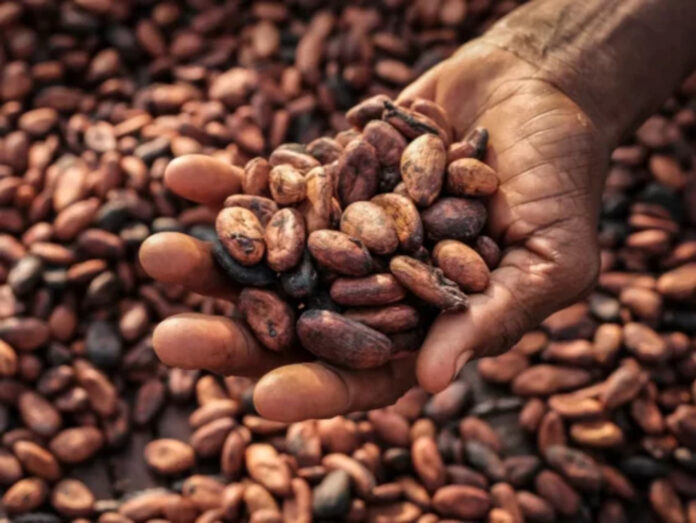Deputy Minister of Trade and Industry, Sampson Ahi, has revealed that the United States Ambassador to Ghana, Virginia Palmer, was left surprised and concerned over the recent 10% tariff imposed on Ghana’s cocoa exports by President Trump.
Speaking on Joy News’ PM Express on Monday, April 7, Ahi disclosed that the tariff issue came up during a meeting with Ambassador Palmer earlier in the day. The discussion was prompted by what the Ghanaian delegation views as an unfair imposition of trade restrictions on a commodity the U.S. does not even produce.
“Again, we asked why,” Mr. Ahi told Evans Mensah during the interview. “Because if you want to impose taxes on commodities to remain competitive, you would do that based on the commodities that you have a competitive advantage over us. The U.S. doesn’t produce cocoa, but they have slapped a 10% tariff on its exports.”
He continued, “We sought clarification, and the ambassador, too, was surprised. She felt that if we pursued it, a commodity like cocoa could be exempted from the 10% tariff.”
The introduction of the tariff by the Trump administration, as part of a broader trade strategy targeting several foreign imports, has drawn sharp criticism from cocoa-producing nations. These nations argue that it directly affects their economic lifelines and undermines global efforts at equitable trade.
Ghana, one of the world’s top cocoa producers, relies heavily on the commodity for foreign exchange. Any new barriers to the export of cocoa are likely to have significant implications for the country’s economy and the livelihoods of millions of cocoa farmers.
According to the Deputy Minister, Ambassador Palmer did not attempt to justify the tariff but instead recommended further engagement between Ghana and the U.S. at a much higher diplomatic level.
“No, she suggested that we should have a higher platform for discussing this particular matter,” Mr. Ahi noted. “She thinks that we should engage at a higher level—that means bringing in the president at a top governmental level.”
“She didn’t understand why cocoa is included. They know that they don’t produce cocoa, and so that was stated clearly,” he added.
Ghana, along with other African cocoa-producing nations, is expected to collectively respond to the new tariff measures. Sampson Ahi indicated that plans are underway for a continental dialogue under the African Continental Free Trade Area (AfCFTA) framework.
“Apart from that, we also know that as Africans, we have agreed to fight this collectively. And so on the 14th of this month, AfCFTA is organizing a meeting with African trade ministers to look at this situation,” he stated.

